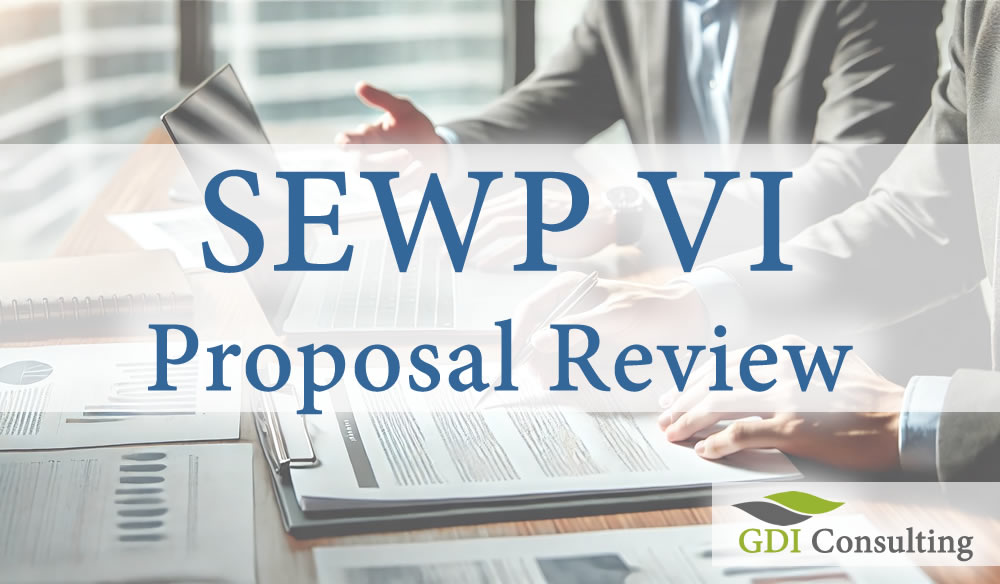Solutions for Enterprise-Wide Procurement (SEWP) VI, a Government-Wide Purchasing Agreement (GWAC) administered by NASA, is an important opportunity for professionals with experience in Information Technology (IT) and Audio-Visual (AV) solutions and applications. Because of the complexity and stringency of SEWP VI requests, outsourcing the proposal review has become an important strategy for operators aiming to submit compliant and competitive proposals.
Understanding SEWP VI’s Complexity
Navigating NASA’s SEWP VI solicitation involves grappling with a variety of complex elements that can overwhelm even experienced contractors. These complexities are derived from a broad spectrum of technical requirements, intricate proposal specifications, and rigorous compliance standards that must be meticulously followed to achieve success.
-
Ambiguous Requirements
One of the foremost challenges is the ambiguous language found within the SEWP VI Final RFP. Released ahead of the anticipated schedule, this document has generated significant confusion, particularly regarding the criteria for Relevant Experience Projects (REPs) and Past Performance requirements. The vagueness of these sections has left many contractors uncertain about how to structure their submissions effectively.
-
Extensive Documentation
Contractors are required to compile and submit multiple volumes of documentation. These include the Offer Volume, Past Performance Volume, and Mission Suitability Volume, each demanding precise information and adherence to specific guidelines. The Offer Volume necessitates thorough administrative documentation as well as relevant forms of the RFP, while the Past Performance Volume requires detailed accounts of previous projects that align closely with SEWP VI’s scope. The Mission Suitability Volume, on the other hand, evaluates the contractor’s technical approach and management capabilities.
-
Stringent Compliance Measures
Adherence to strict compliance measures is non-negotiable. For instance, ISO 9001 and CMMI Level 2 certifications (for Category B), AbilityOne letters, and Letters of Authorization from OEMs/Providers for Category A are some of the required certifications. Ensuring that these certifications are current and accurately documented in the proposal is crucial for maintaining eligibility. Any lapses in compliance can result in disqualification, making this a critical area of focus.
-
Unfamiliar Technical/Management Writeups
Volume 3 of the proposal requires very strong and concise Technical Approach and Management Approach sections that need to be written toward the requirements as spelled out in the RFP. Unfortunately, the RFP is very vague as to what is required and requests some information that many of the smaller service companies might not have. That is why a seasoned reviewer can point out the important deficiencies in your Volume 3.
Importance of Reviews for SEWP VI Success
Expert consulting services are indispensable for contractors aiming to excel in the SEWP VI solicitation, primarily due to the intricacies and stringent requirements involved. These services provide essential benefits that enhance the overall quality and competitiveness of the proposal, addressing both procedural complexities and strategic development needs.
A detailed review of the proposal by external consulting firms is essential to ensure it meets all RFP requirements. This review process requires a thorough examination of the proposal’s content, design, and compliance with SEWP VI guidelines. Counselors carefully ensure accuracy, consistency, and completeness, reducing the risk of rejection due to technicalities.
During the evaluation process, consultants provide formalized feedback on proposal , highlight areas for improvement, and suggest changes to improve the overall quality of the proposal . These statements are designed to address any specific issues relating to the employee’s performance and experience, ensuring that the ratings adequately reflect the employee’s strengths and abilities.
In addition to content analysis, consultants also focus on the proposal’s specification and organization. They ensure that the proposal meets the required format, uses clear and concise language, and includes all necessary documentation and appendices. This thorough analysis increases the proposal’s chances of success and sets it apart from competitive SEWP VI solicitations.
Final Note
The SEWP VI request presents significant opportunities for professionals working in the IT and AV industries but also presents significant challenges due to its complex and stringent but vague requirements. The provision of proposal reviews to expert consulting firms is essential to meet these challenges, ensure compliance, and increase the competitiveness of proposals. By applying strategic knowledge and insight, contractors can increase their chances of success in obtaining a SEWP VI contract and position themselves for future opportunities in a government procurement environment in the highly competitive market.

